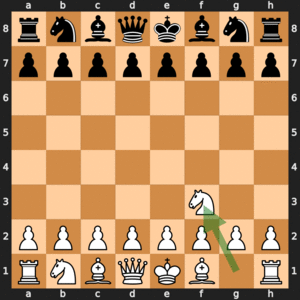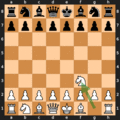Donald Byrne facts for kids
Donald Byrne (born June 12, 1930 – died April 8, 1976) was an American university professor and a talented chess player. He earned the title of International Master in chess. Donald Byrne also represented the United States in the Chess Olympiad many times.
About Donald Byrne
Donald Byrne was born in New York City. He became a professor of English language and literature. From 1961 until his death, he taught at Pennsylvania State University. He was also invited there to coach the university's chess team. Before Penn State, he taught at Valparaiso University in Indiana.
Byrne was part of a chess club led by Brooklyn chess coach John W. Collins. Collins wrote a book called My Seven Chess Prodigies. This book featured both Donald and his brother, Robert Byrne, as well as a young Bobby Fischer.
Donald Byrne passed away in Philadelphia due to health problems from lupus, a serious illness. In 2003, he was honored by being added to the U.S. Chess Hall of Fame.
Donald Byrne's Chess Journey
Donald Byrne won the U.S. Open Chess Championship in 1953. This happened in Milwaukee. Around that time, he had the second-highest rating in the U.S. Only Samuel Reshevsky had a higher rating. Interestingly, Byrne often won his games against Reshevsky.
In 1962, FIDE (the World Chess Federation) gave him the International Master title. He played for or led five U.S. Chess Olympiad teams between 1962 and 1972. In 1972, he guided a team from Pennsylvania State University to win the US Amateur Team Championship. His older brother, Grandmaster Robert Byrne, was also a top chess player back then.
Donald Byrne was a great representative for American chess. He got along well with players from different countries, even during the Cold War. At the 1966 Chess Olympiad in Havana, Cuba, there was a problem. Bobby Fischer, a U.S. team member, did not play on Saturdays due to his beliefs. But the tournament scheduled his first game against a Soviet player on a Saturday. This caused a lot of anger between the U.S. and Soviet teams and the officials. Donald Byrne was very good at talking to people. Everyone respected him. He used his skills to help reschedule the game. This made sure everyone was happy and the tournament continued smoothly. The host, Fidel Castro, even gave Byrne a beautiful handmade chess set to thank him.
His teammates often asked Byrne to be their captain. This was because he was good at working with people and was always kind and helpful. He would often help players look at their games during breaks. He also managed to help the sometimes difficult Fischer "relax and play the game." He would say this to Fischer when stress made him want to quit tournaments.
In the late 1950s, Byrne got lupus, an illness where the body's immune system attacks itself. He was known on campus for wearing a wide-brimmed brown hat. He loved telling stories about his chess adventures. He would often turn red from laughing so hard. One famous story happened during the 1956 Rosenwald tournament. It was during the "Game of the Century" between Byrne and young Bobby Fischer. Fischer was clearly winning the game. Byrne asked other players if it would be a good way to show respect for Fischer's amazing play. He wondered if he should let Fischer play until checkmate instead of just resigning. Normally, chess masters would resign when they know they will lose. When the others agreed, Byrne played on until Fischer checkmated him. Byrne later added, "You have to remember, Bobby wasn't yet Bobby Fischer at that time." He meant that 13-year-old Fischer was "only" a master then. He had not yet become the famous 14-year-old child chess genius and top U.S. player.
As a player, Byrne helped make certain chess strategies popular. For example, he used a specific move called the a5 line in the Yugoslav Attack. This is part of the Dragon Variation in the Sicilian Defence. When playing as Black against the move 1. d4, he often chose the Gruenfeld Defense. When playing as White, he liked to use the English Opening.
Images for kids
See also
 In Spanish: Donald Byrne para niños
In Spanish: Donald Byrne para niños
 | Laphonza Butler |
 | Daisy Bates |
 | Elizabeth Piper Ensley |



